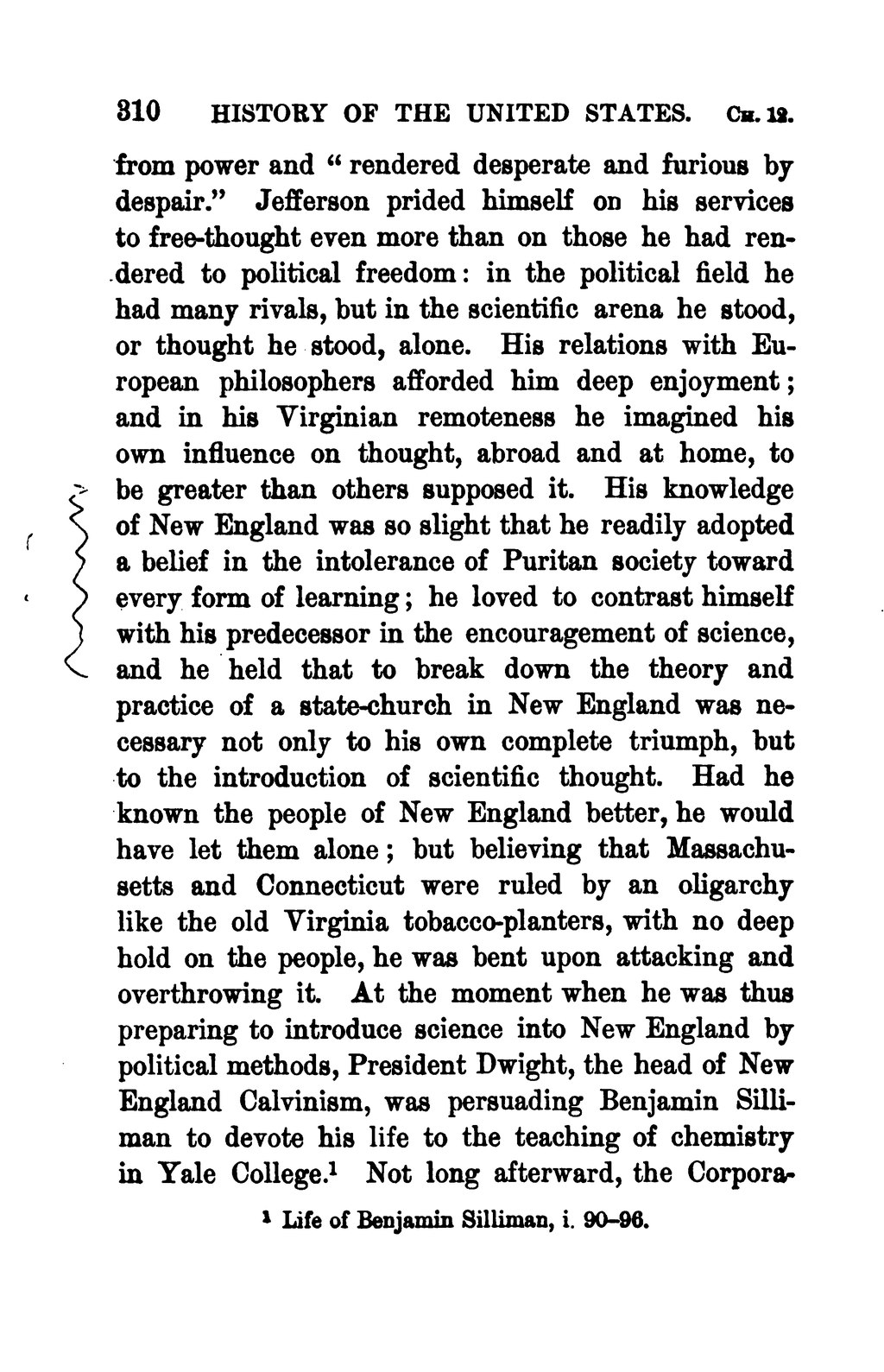from power and "rendered desperate and furious by despair." Jefferson prided himself on his services to free-thought even more than on those he had rendered to political freedom: in the political field he had many rivals, but in the scientific arena he stood, or thought he stood, alone. His relations with European philosophers afforded him deep enjoyment; and in his Virginian remoteness he imagined his own influence on thought, abroad and at home, to be greater than others supposed it. His knowledge of New England was so slight that he readily adopted a belief in the intolerance of Puritan society toward every form of learning; he loved to contrast himself with his predecessor in the encouragement of science, and he held that to break down the theory and practice of a state-church in New England was necessary not only to his own complete triumph, but to the introduction of scientific thought. Had he known the people of New England better, he would have let them alone; but believing that Massachusetts and Connecticut were ruled by an oligarchy like the old Virginia tobacco-planters, with no deep hold on the people, he was bent on attacking and overthrowing it. At the moment when he was thus preparing to introduce science into New England by political methods, President Dwight, the head of New England Calvinism, was persuading Benjamin Silliman to devote his life to the teaching of chemistry at Yale College.[1] Not long afterward, the Corporation
- ↑ Life of Benjamin Silliman, i. 90-96.
